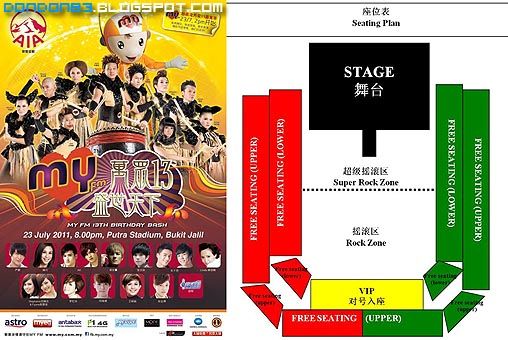After helping to prepare the Mother’s Day Brunch, Jane said:
“Thanks for the Mother’s Day Brunch…
ME!”
After helping to prepare the Mother’s Day Brunch, Jane said:
“Thanks for the Mother’s Day Brunch…
ME!”










NASA satellite data from the years 2000 through 2011 show the Earth's atmosphere is allowing far more heat to be released into space than alarmist computer models have predicted, reports a new study in the peer-reviewed science journal Remote Sensing. The study indicates far less future global warming will occur than United Nations computer models have predicted, and supports prior studies indicating increases in atmospheric carbon dioxide trap far less heat than alarmists have claimed.Thanks, Al, for nothing. You can go home now. And stay there.
Scientists at the University of Michihan [sic] looked at 6.5million car crashes and found a higher than expected number of accidents between two female drivers.About which I have no comment.
They also discovered that women have a tough time negotiating crossroads, T-junctions and slip roads.
Unbelievable: Obama White House Stubbornly Refusing to Release Any Written Debt Plan (Update: Video Added)It is worth remembering that for all the scorn the president hurled Monday night at selected members of Congress for opposing the Democrat plan for
The Obama White House is so irresponsible, and so fearful of locking itself into anything at all, that it’s refusing to even put a debt plan on paper. Rory Cooper tweeted this from today’s WH press briefing:Chuck Todd: “Release your plan” Jay Carney: “We’ve shown a lot of leg” Todd: “Why not just release it?” Carney: “You need it written down?”Yes, Jay, the American people elected your boss in the hope that he might occasionally do his job. Show his work. Demonstrate a little competence once in a while. Is that too much to ask?
The Democratic Senate has not proposed a budget in either of the last two years. In February, President Obama offered a budget that would actually increase the deficit. Then in a speech in April he essentially retracted it, and offered in its place a vague and incoherent series of policy goals that left Democrats with no particular agenda. On June 23, at a hearing of the Budget Committee, CBO director Douglas Elmendorf was asked what his agency made of the proposals in that presidential address. “We don’t estimate speeches,” he said. “We need much more specificity than was provided in that speech.”Well, Douglas, old boy, you just ain't-a gonna get it from this president.
For those of us who have watched the torturous day-to-day descent of this crisis, the president’s detachment and absence have been obvious. On Monday, Politico’s Glenn Thrush reported: “Obama was barely visible for much of the weekend.”This detachment will not essentially change between now and Aug. 2. So what will the president do between now and then?
As the president faced the nation on Monday evening, he knew his economic legacy was on the line. Historians will judge him for his economic stewardship.
The assessment will not be good. Going deep into his presidential term, he presides over a country that suffers from high unemployment, record home foreclosures, and a no-growth economy. But when the most pivotal issue of our decade emerged — a $16.8 trillion debt crisis — where was the “Obama plan”?
The sad truth is there is no Obama plan and there never has been a plan. The president gingerly approached the debt crisis as he has approached other issues: intellectually, coolly, passively, and with great detachment. ...
None of the plans being debated today have the imprimatur of the Oval Office. At a moment when presidential leadership is so vital, President Obama has been passive. Passivity also was the hallmark of his approach to his other signature blockbuster initiatives: the TARP bailout, ObamaCare, and the financial services initiatives.
I was a rigger on luxury yachts when the yacht tax was implemented. The wealthy people who were the supposed targets of the tax simply put off buying new toys. Those of us who built and maintained the yachts lost our homes. Even those that didn’t lose their homes paid a high price for the Democrats’ class warfare. That’s always the way it is. The leftist’s targets aren’t the ones who get hurt. It’s the middle class working people who provide services to the wealthy that get screwed.Laying all that side, though, there is another fallacy in Rep. Pascrell's argument. Even ifr we stipulate (laying all reason and empirical data aside as well) that spending cuts cost jobs while tax rises save them, not any Democrat in either house has proposed
Distressingly, neither the president nor the Democrats offer any rigorous account of the optimal level of tax progressivity. Rather, the president seems to think that no matter how high the current marginal tax rates, the correct social policy is to move them upward.For Pascrell and almost all his party, the rule is always so very simple: spending cuts bad, tax increases good, and that's that. It's all part and parcel of the progressivists' religion of our day.
[W]hat makes today’s stalemate so dangerous is that it has been tied to something known as the debt ceiling – a term that most people outside of Washington have probably never heard of before."Debt Ceiling" debates and issues have been the nearly non-stop topic of news coverage for weeks on end now, so much so that for awhile I thought that Debt Ceiling might have been an unusual name of a blonde college gal gone missing on a Caribbean island.
We don't yet know what the final deal to raise the debt ceiling will be. But now that Harry Reid is developing a proposal with $2.7 trillion in cuts and nothing in revenues, it's a safe bet that it won't include any tax increases. Which means that whether Republicans realize it or not, they've won. The question now is whether they can stop.The AP says that Reid and Boehner are now prepared to move ahead and place this deal, or something very close, on President's Obama's desk. Earlier today the WashTimes reported that Boehner, tired of Obama's never-ending gamesmanship and one-upping, finally told the president, "Congress writes the laws and you get to decide what you want to sign."
Potty training attempt #1 (May)
After a few weeks of talking it up, I decide, on a whim, to bring the potty-chair up to the main level. Faith excitedly jumps on it. Sits/tries for 3.5 minutes and begins yelling “I can’t! It’th too hard!” She gets off crying.
Over the next 2-3 days, I bring it up and she gets very upset, insisting “I NOT try it. It’th too hard!”
I come down one morning and don’t see the potty chair. I ask around. Faith, says matter-of-factly, “I took it back to the bathement, because I HATE it!”
Potty training attempt #2 (July)
After reading a particularly inspiring potty-training book from the library, Faith decides she’s a teensy bit interested in being like Ashley (the main character) so we retrieve the potty chair from the basement again.
But not really. After gently cajoling to sit on the potty, try on the gorgeous Dora panties, watch Dad sit on the potty-chair, etc., Faith is in intractable tears.
About 30 minutes after we switch activities, we notice Faith hoisting the potty-chair and heading down the stairs with it “Becauthe I don’t like it!”
What’s that phrase again? "No one goes to kindergarten in diapers”? Something like that?



 look at the stage. that's where the event held later. btw. the stage decoration is nicely done :)
look at the stage. that's where the event held later. btw. the stage decoration is nicely done :) 
















